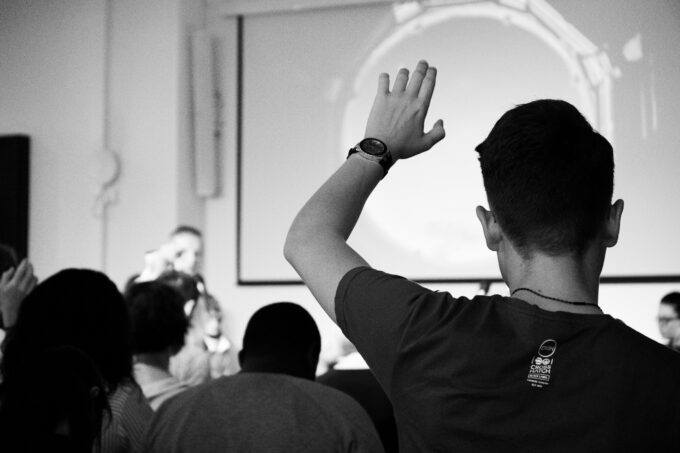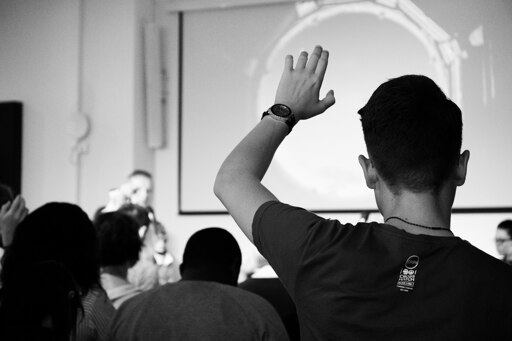
Image by Felicia Buitenwerf.
“I do think it’s my job to be there and I do think that I need to model the behavior that I want our government to model.”
Nebraska’s Congressman Mike Flood had just gotten a tongue-lashing from constituents at a town hall meeting, facing tough questions and ultimately chants of “vote him out!” by Democrats angered by his support for Trump’s policies.
In an interview with NPR, Rep. Flood said, “I think it’s somewhat cathartic for them to be able to have the opportunity to address their representative government.” He explained that he tells the police before such events, “I do not want anybody removed or arrested. I want them to be able to say what they have to say. This part of the deal, this is the way people feel right now.”
As a community mediator, I had two reactions to his words.
First, I wanted to celebrate Rep. Flood for his insights.
Rep. Flood understands that these meetings are part of the job of elected officials in a democracy, and that it’s normal for meetings to get tense when so many people feel their concerns are not being heard. He also understands the need – especially for leaders — to de-escalate, rather than escalate, tense situations.
Second, I wished more people knew that public meetings do not have to turn out that way.
Town halls, as well as school board meetings and other public hearings, are an integral part of our democracy. However, the typical format tends to create conflict rather than understanding. People line up for a minute or two at the microphone. They direct concerns to officials often intimidatingly seated on a dais and often prohibited from responding – even to ask clarifying questions.
This approach helps no one. Citizens feel small and ignored, increasingly frustrated and angry. Officials feel attacked and without a constructive way forward.
That’s to be expected. We’re hardwired with a need to feel respected, connected to others, and treated fairly. When we don’t feel that way, our ability to think rationally decreases. We’re also hardwired to crave certainty. If we encounter an information vacuum, we fill it with (often incorrect) assumptions.
We can use this understanding of our neurobiology to design better meetings. When we feel validated and safe, our defenses come down and we can listen deeply, think creatively, and solve problems. That’s the state we want our town halls to put us in.
How? We start by reframing how we think of these meetings, into opportunities for listening and learning, engaging each other, and building trust between people and elected officials. We create meeting agendas that ensure people feel truly heard and respected, which in turn makes them feel secure, relaxed, and able to engage with each other. To do that, conveners can:
Poll communities in advance to create agendas based on peoples’ concerns
Engage skilled, nonpartisan facilitators able to establish norms of respect and guide a conversation enabling people to express themselves and hear each other
Reach out to a wide range of community members, or take town halls on the road to different parts of the community
Use live-meeting polling or small group discussions to take the temperature in the room and ensure that quieter folk still express themselves
Follow up with accessible reports on what was covered and subsequent actions
Officials can ask their local community mediation centers or other skilled facilitators for help. Our public meetings can become part of our way forward.
The post Turning Down the Temperature: How Town Halls Can Be Productive Again appeared first on CounterPunch.org.
From CounterPunch.org via this RSS feed


